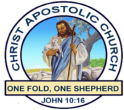
We say that the Bible is vital to our faith and life, but what exactly is the Bible? Here are four ways to view it:
A library
The Bible is a collection of sixty-six books, thirty-nine in the Old Testament (or Hebrew Bible) and twenty-seven in the New Testament. These books were written over a one-thousand-year period in three languages: Hebrew, Aramaic (the language Jesus spoke), and Greek.
The books are of different lengths and different literary styles. In the Hebrew Bible we find legends, histories, liturgies for community worship, songs, proverbs, sermons, even a poetic drama (Job). In the New Testament are Gospels, a history, many letters, and an apocalypse (Revelation). Yet through it all the Bible is the story of the one God, who stands in a covenant relationship with the people of God.
Sacred Scripture
In early times and over many generations, the sixty-six books were thoughtfully used by faithful people. In the process their merits were weighed, and the community of believers finally gave them special authority. Tested by faith, proven by experience, these books have become sacred; they've become our rule for faith and practice.
In Israel the Book of Deuteronomy was adopted as the Word of God about 621 B.C. The Torah, or Law (the first five books of the Hebrew Bible), assumed authority around 400 B.C.; the Prophets about 200 B.C.; and the Writings about 100 B.C. After a struggle the Christians determined that the Hebrew Bible was Scripture for them as well. The New Testament as we know it was formed and adopted by church councils between A.D. 200 and A.D. 400.
God's Word
We say that God speaks to us through the Bible, that it's God's Word. This authority derives from three sources:
We hold that the writers of the Bible were inspired, that they were filled with God's Spirit as they wrote the truth to the best of their knowledge.
We hold that God was at work in the process of canonization, during which only the most faithful and useful books were adopted as Scripture.
We hold that the Holy Spirit works today in our thoughtful study of the Scriptures, especially as we study them together, seeking to relate the old words to life's present realities.
The Bible's authority is, therefore, nothing magical. For example, we do not open the text at random to discover God's will. The authority of Scripture derives from the movement of God's Spirit in times past and in our reading of it today.
A guide to faith and life
We CAC Harvest Mission put the Bible to work. In congregational worship we read from the Bible. Through preaching, we interpret its message for our lives. It forms the background of most of our hymns. It's the foundation of our church school curriculum. Many of us use it in our individual devotional lives, praying through its implications day by day. However, we admit that there's still vast "biblical illiteracy" in our denomination. We need to help one another open the Bible and use it.
Perhaps the Bible is best put to use when we seriously answer these four questions about a given text: (1) what did this passage mean to its original hearers? (2) What part does it play in the Bible's total witness? (3) What does God seem to be saying to my life, my community, my world, through this passage? And (4) what changes should I consider making as a result of my study?
